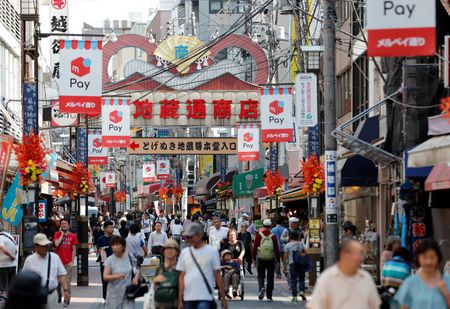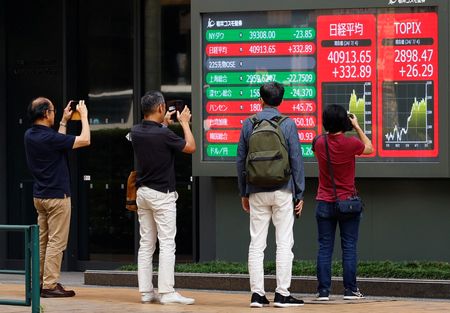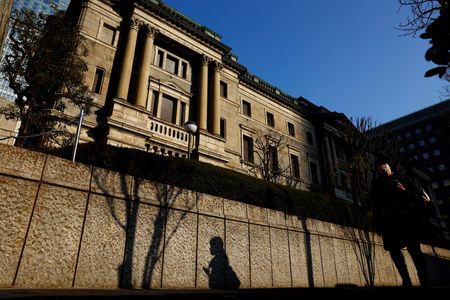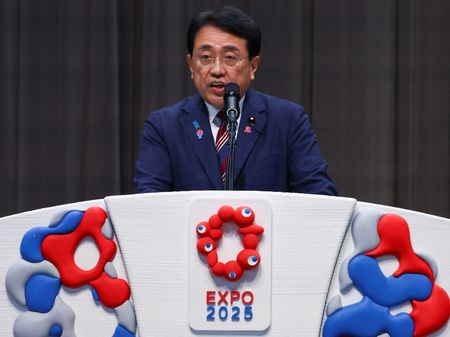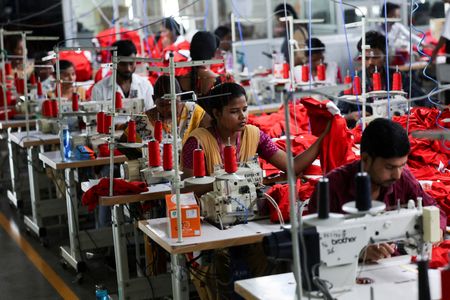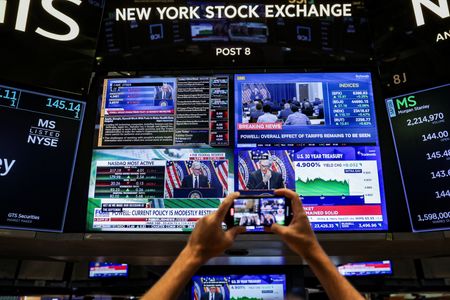By Satoshi Sugiyama
TOKYO (Reuters) -Japanese household spending rose in June at a slower rate than market participants had expected, showed government data on Friday, as higher prices particularly for food items discouraged purchases and added pressure to broader consumption trends.
While core inflation has exceeded the Bank of Japan’s 2% target for well over three years, potentially giving the bank leeway to raise interest rates as it unwinds years of loose monetary policy, lacklustre consumption adds to geopolitics and tariffs as a lingering economic risk.
Consumer spending rose 1.3% in June from the same month a year earlier, showed data from the Ministry of Internal Affairs and Communications. That was short of the median market estimate of 2.6% and May’s 4.7%.
On a seasonally adjusted, month-on-month basis, spending fell 5.2%, the steepest since January 2021. That compared with the 3% decline expected by economists in a Reuters poll.
In June, spending on food declined versus the year earlier for the first time in three months, by 2.1%.
Spending on rice, a key item propelling inflation in food prices, dropped at the fastest rate since May 2022, by 12.1%.
“With regard to rice, price hikes led to a reduction in purchase volume and a shift toward purchasing lower-priced products,” a ministry official told reporters at a briefing.
Consumption and wage trends are among key factors the BOJ monitors to determine the timing of interest rate action.
Hefty pay hikes have been widely seen as essential to counter inflation-induced increases in the cost of living.
Japanese companies agreed to raise wages by 5.25% this year, the most in 34 years.
Still, real wages fell in June for a sixth consecutive month as inflation outpaced pay growth, showed data released on Wednesday, stoking concern about consumption-led recovery in the world’s fourth-largest economy.
The government on Thursday cut its economic growth forecast for this fiscal year as U.S. tariffs slow capital expenditure and persistent inflation weighs on private consumption.
“If corporate earnings are significantly squeezed (due to U.S. tariffs), this could have a negative impact on winter bonuses and spring labour negotiations in 2026, which could lead to a slowdown in wage increases,” said senior economist Masato Koike at Sompo Institute Plus.
(Reporting by Satoshi Sugiyama; Editing Himani Sarkar and Christopher Cushing)

